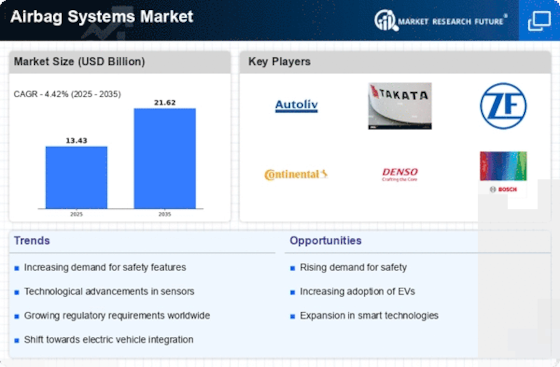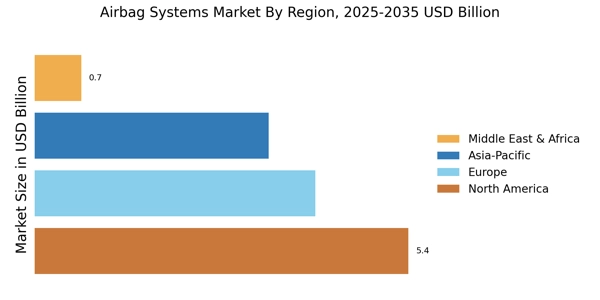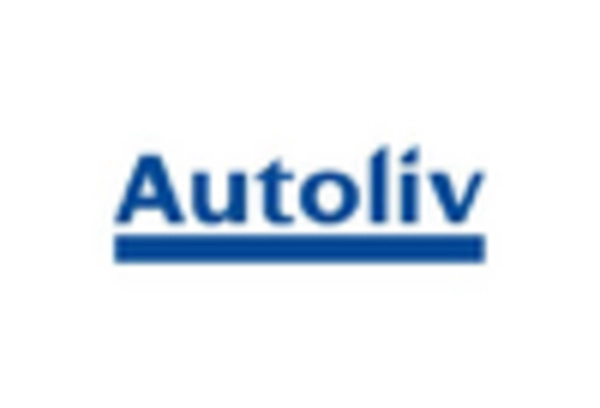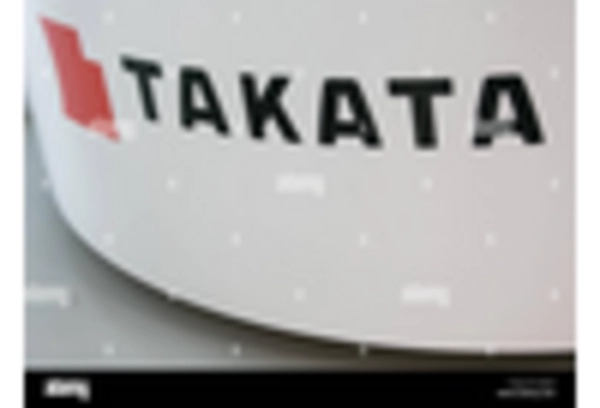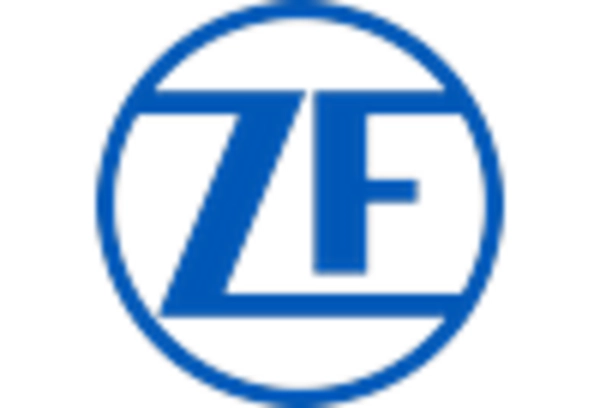Stringent Government Regulations
The Airbag Systems Market is significantly influenced by stringent government regulations aimed at enhancing vehicle safety. Regulatory bodies across various regions have established comprehensive guidelines mandating the inclusion of advanced airbag systems in new vehicles. For instance, regulations may require the installation of side airbags and curtain airbags to protect occupants in side-impact collisions. Compliance with these regulations is not only essential for manufacturers but also serves as a catalyst for innovation within the airbag systems sector. As regulations evolve, the market is expected to adapt, leading to the development of more sophisticated airbag technologies that meet or exceed safety standards.
Growth of the Automotive Industry
The growth trajectory of the automotive industry plays a crucial role in shaping the Airbag Systems Market. As vehicle production increases, so does the demand for advanced safety features, including airbag systems. Recent statistics indicate that the automotive sector is projected to expand at a steady pace, with a significant rise in the production of passenger vehicles. This expansion is likely to drive the demand for airbag systems, as manufacturers seek to enhance safety features to attract consumers. Consequently, the airbag systems market is poised for growth, fueled by the automotive industry's ongoing evolution and the increasing emphasis on occupant safety.
Rising Consumer Awareness of Vehicle Safety
Consumer awareness regarding vehicle safety is a significant driver in the Airbag Systems Market. As individuals become more informed about the benefits of advanced safety features, there is a growing expectation for manufacturers to equip vehicles with state-of-the-art airbag systems. Surveys indicate that a substantial percentage of consumers prioritize safety ratings when purchasing vehicles, which directly influences manufacturers to invest in enhanced airbag technologies. This trend is likely to continue, as safety remains a paramount concern for consumers, thereby propelling the demand for innovative airbag systems that offer superior protection during collisions.
Technological Advancements in Airbag Systems
The Airbag Systems Market is experiencing a notable transformation due to rapid technological advancements. Innovations such as adaptive airbags, which adjust deployment based on occupant size and position, are becoming increasingly prevalent. Furthermore, the integration of sensors and smart technologies enhances the effectiveness of airbag systems, potentially reducing injury rates in accidents. According to recent data, the market for advanced airbag systems is projected to grow at a compound annual growth rate of approximately 7% over the next five years. This growth is driven by the automotive sector's commitment to improving safety features, thereby increasing the demand for sophisticated airbag systems that can respond dynamically to various crash scenarios.
Emergence of Electric and Autonomous Vehicles
The emergence of electric and autonomous vehicles is poised to reshape the Airbag Systems Market. As these vehicles become more prevalent, there is a growing need for advanced airbag systems that can accommodate new design paradigms and safety requirements. Electric vehicles often feature different weight distributions and structural designs, necessitating the development of specialized airbag systems. Moreover, autonomous vehicles may require innovative airbag technologies that can adapt to various scenarios without human intervention. This shift presents both challenges and opportunities for manufacturers, as they strive to create airbag systems that align with the evolving landscape of vehicle technology.


